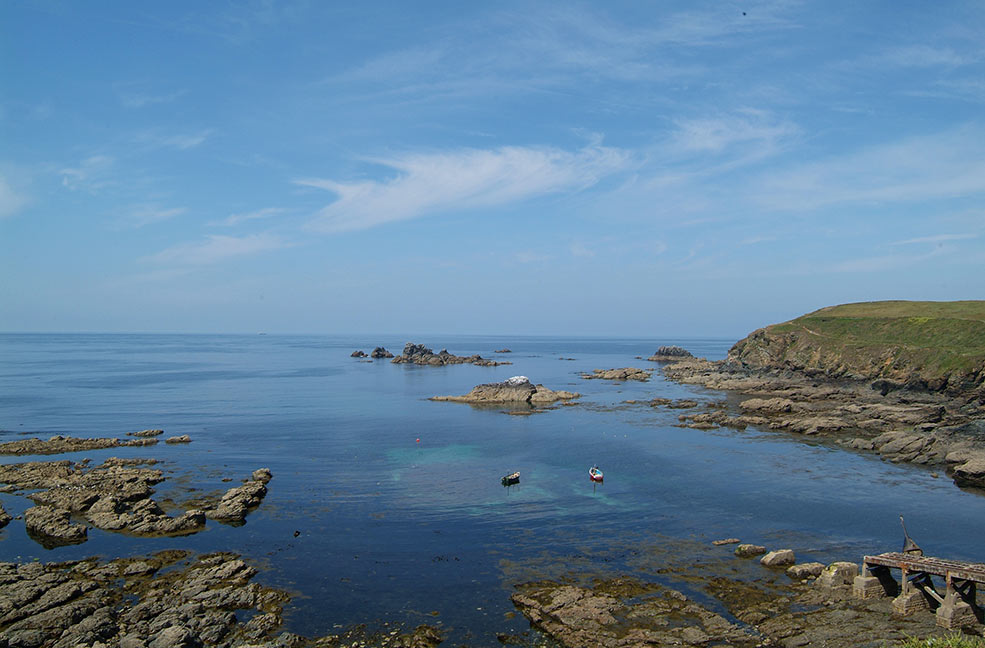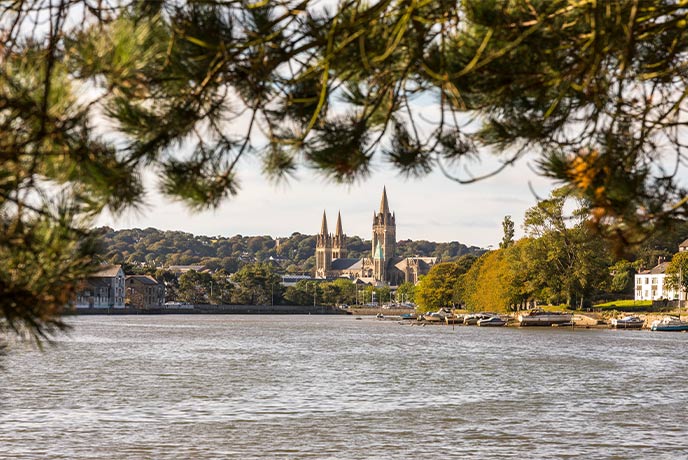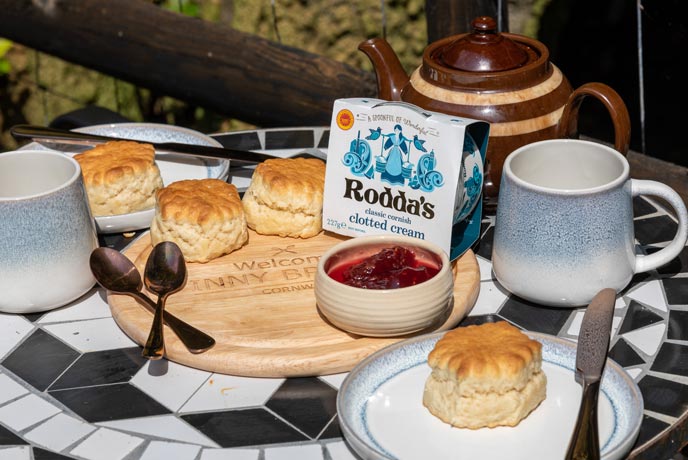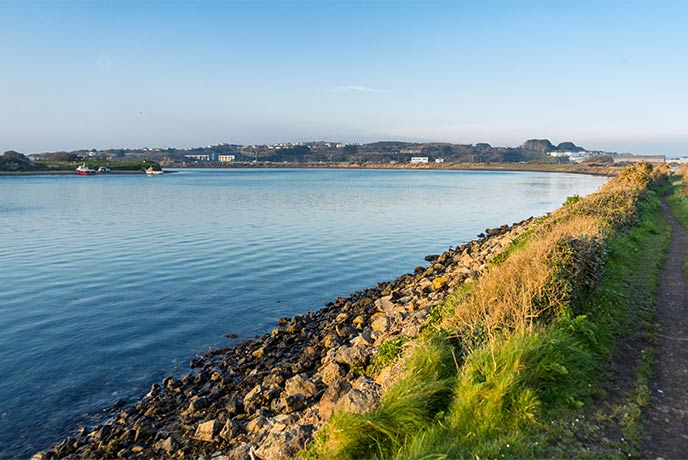There is enormous satisfaction and well-known health benefits to be gained from making your own food from scratch. Knowing exactly what is going into each dish and where it came from is a rare thing but just imagine if you could also source some or all the ingredients for your cooking yourself!
Foraging courses have become increasingly popular in recent years as people rediscover the joy of harvesting their food from Mother Nature. With its wonderfully diverse and incredibly special natural resources, Cornwall is the perfect place to learn this ancient art from experts in the field (often quite literally!). It’s so important to really understand what you can gather, what tastes good, and what should be left in the hedgerow or on the beach.
With that in mind here is our guide to the very best foraging courses in Cornwall!
Wild Walks South West
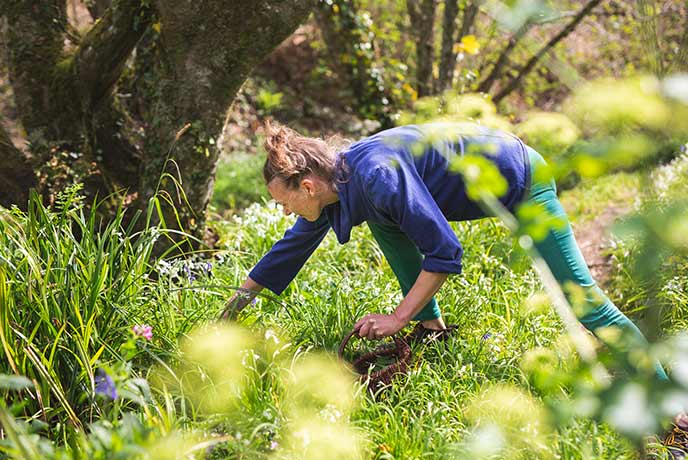
Best for: Private bespoke courses
Rachel Lambert is a highly experienced forager and guide who has published several books on the subject and runs bespoke courses for beginners in Devon and Cornwall.
Rachel set up Wild Walks South West in 2007 and since then has been inspiring others with her enthusiasm. For her, foraging is the glue that brings together the things she loves; nature, time outdoors, walking, good food and people. Rachel can arrange walks that suit your schedule, location, expectations and lifestyle, as well as provide recipe ideas and a list of all the plants discussed at the end of the walk. From coastal delights to hedgerows, fields, and woodlands, Rachel will introduce you to an entirely new world of food.
The Family Foraging Kitchen
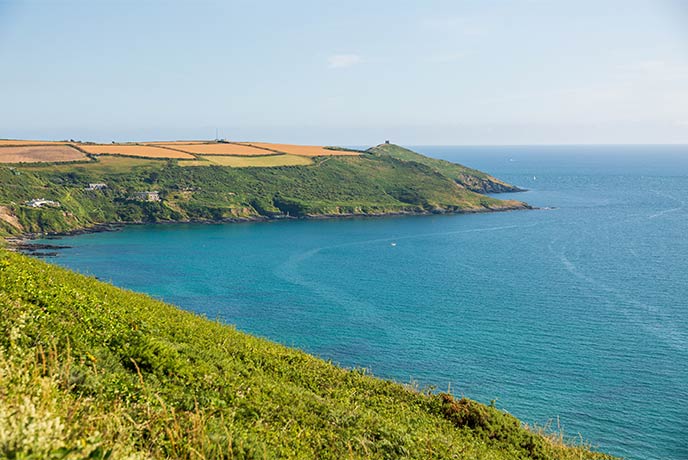
Best for: Courses for children
The Family Foraging Kitchen is an exciting social enterprise providing foraging walks and heritage craft courses across Cornwall. Through education and social initiatives, they aim to preserve traditional skills, reduce food insecurity, and build sustainable communities that are connected to nature and their history.
In 2015, this amazing enterprise won an Appetite for Change Award, enabling it to begin its social enterprise programme, Free Food Forever. This programme aims to provide free foraging courses for low-income families and works closely with schools and young people to encourage the next generation of foragers.
Family Foraging Kitchen is not just about the gathering of your goodies! The website is bursting with recipe ideas for what to make with your wonderful harvest. From dock leaf soup to seaweed spaghetti, there is something to inspire and tickle your taste buds.
Based on the stunning Rame Peninsula, one of the least explored regions of Cornwall, joining a course here is also a wonderful opportunity to really get off the beaten track as you uncover the quiet beauty of Portwrinkle and the sandy delights of Whitsand Bay.
Cornwall Foraging & 7th Rise
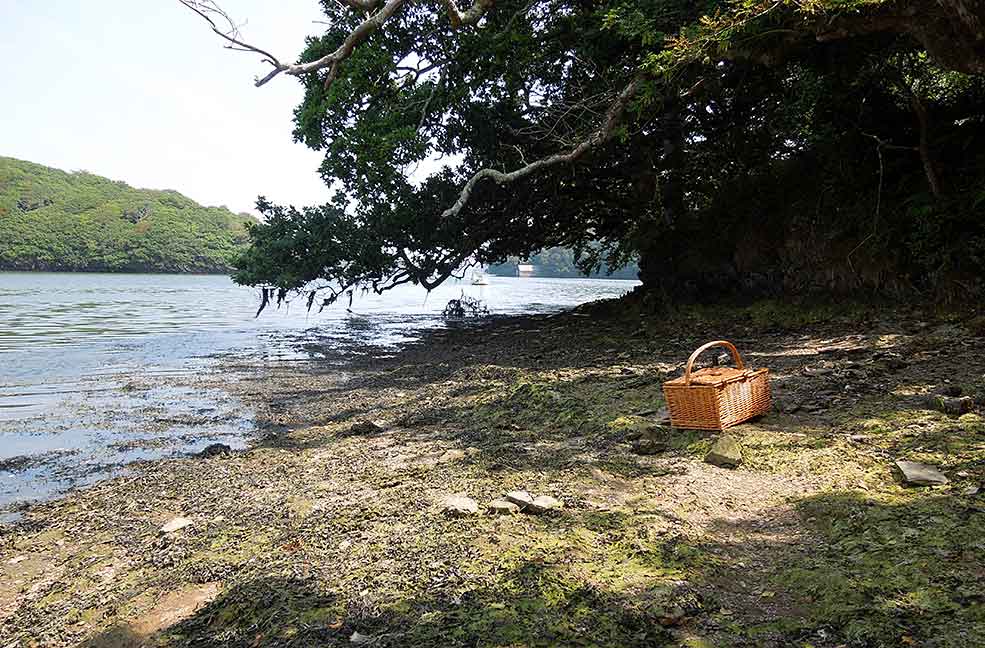
Best for: Wild living enthusiasts
Stuart from Cornwall Foraging is on a mission to introduce as many people as possible to the wonderful world of wild eating, whether it’s moreish mushrooms or salty seaweeds. During his popular foraging walks, he’ll also talk about the plant’s medicinal properties as well as offer some delicious recipes for you to try at home.
Soak up the simple joy of being outside as you reconnect with the natural world around you, before being led through a cooking demonstration that makes the most of the goodies you’ve collected throughout the day. If you want to immerse yourself further into the wild, Stuart is also the resident chef at an outdoor retreat called 7th Rise.
Based in a 300-year-old woodsman’s cottage tucked away on the Roseland Peninsula, 7th Rise offers day courses in not only foraging but also wild game butchery, wild ink workshops, bush crafts, archery, canoe skills and green woodworking.
Fat Hen Wild Cookery School
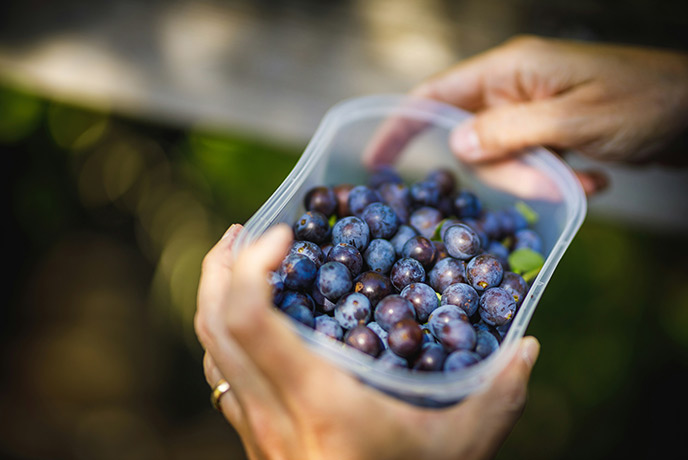
Best for: Large group walks
Introducing people to the world of foraging since 2007, Caroline Davey from Fat Hen is one of the top wild cookery professionals in Cornwall. Her two-hour walks are fantastic for groups, making them great for family adventures or days out with friends. She’ll also come to you, meaning you can explore the area surrounding your holiday cottages as you learn all there is to foredge along the hedgerows.
Alongside delicious plants, Caroline will also cover medicinal plants and poisonous lookalikes so you can forage safely every time you visit Cornwall. From recipes you can include in your daily diet to the wellbeing aspects of foraging in nature, these workshops are a true tonic for the mind, body, and soul.
Wild St Ives
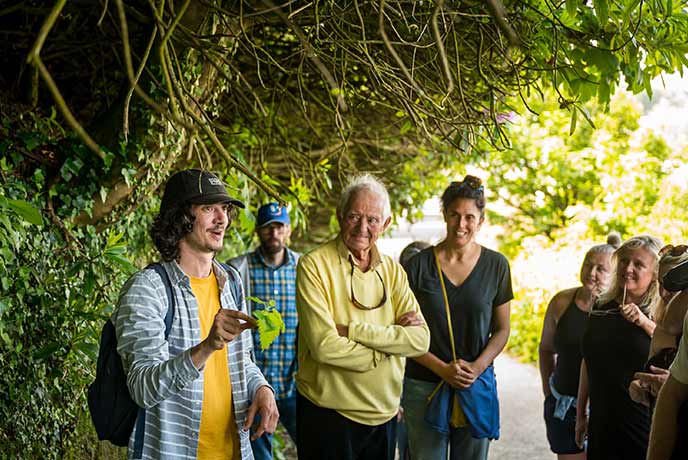
Best for: Tree and flower identification
According to Wild St Ives, their mission is to inspire the connection between people, plants, and the great outdoors. As well as providing nature walks to help people identify our native trees and flowers, the team also provides foraging walks along the coastal paths around St Ives.
Established by St Ives local Josh Quick in 2016, the Wild St Ives walks usually take place during the spring and summer months. The aim of the walks is to help beginners identify a range of species and understand their uses in everyday life, including the mental health benefits of foraging.
One of the most popular places in West Cornwall, a wildflower foraging walk enables you to get a glimpse of a different side to this much-loved town and its sprawling coastline. St Ives is also within easy reach of the magic of Mounts Bay and the amazing ancient sites of Penwith, giving you every opportunity to soak up this wildly beautiful corner of Cornwall.
Cornish Foraging
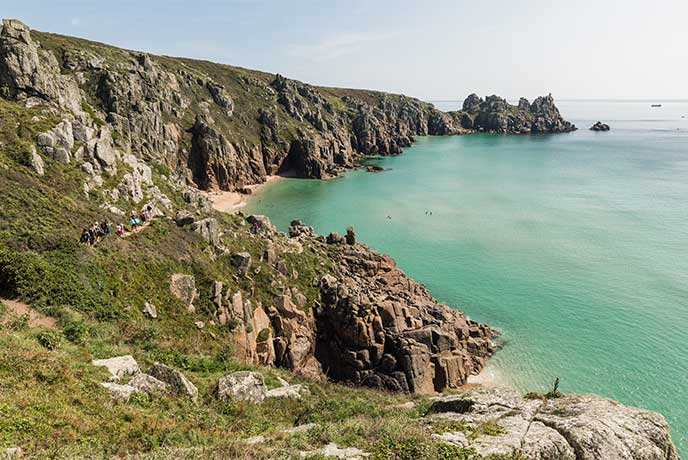
Best for: Wild tea and elderflower champagne
Cornish Foraging is a fantastic experience for those looking to explore dramatic coastlines while learning about the county’s rich natural larder. Local guide Jonathan will lead you around West Cornwall’s breathtaking coastline between Pedn Vounder and Penberth while introducing you to the wild foods that grow along the coast.
This stretch of coastline is famous for its wildlife, so make sure you keep your eyes peeled for dolphins, basking sharks, and a variety of sea birds. The tour usually begins with a cup of hedgerow tea and ends with a glass of elderflower wine, giving you a true taste of Cornwall.
Woodland Valley Farm
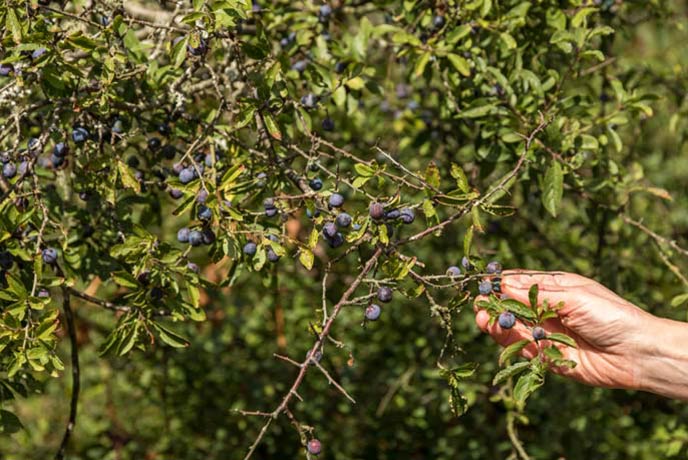
Best for: Conservation awareness
Woodland Valley Farm near Ladock has become famous for reintroducing beavers to Cornwall. Alongside walks to see the amazing critters, the farm is a flagship in diversification, running courses in cheese making, clay pigeon shooting, relaxation sessions and training in survival skills.
Woodland Valley Farm has also introduced a one-day wild food workshop, which covers everything from identifying plants to cooking them while exploring the gorgeous woodland valley. During the workshop, you’ll learn about Cornwall’s many edible plants as well as their uses; both in cooking and medicinal. Enjoy a day of inspiring stories and wonderful insights into the natural world that grows and thrives around you.
What to bring on a foraging course
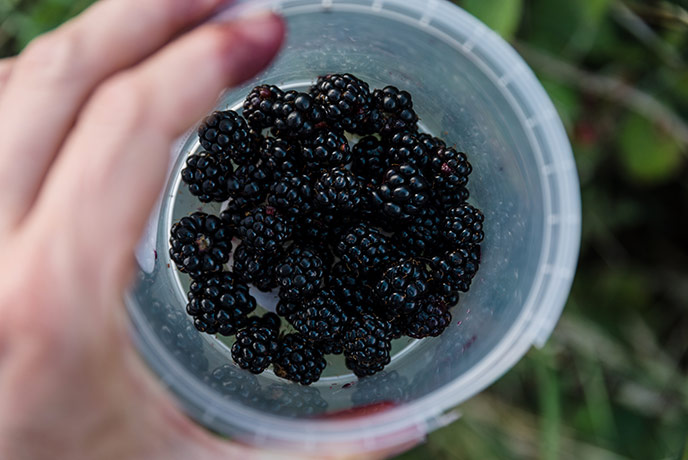
Now that we’ve introduced you to some of the amazing organisations and individuals who can introduce you to the nourishing world of foraging, it’s time to get prepared for your adventure.
Our guide to coastal foraging in Cornwall is a great place to start, with its comprehensive list of foraged delights you can find in and around the Cornish coast, but here are some other tips and tricks to bear in mind…
• A basket or bag to collect things in
• Notepad and pencil to draw or take notes
• Camera
• Snacks
• A plate or bowl and cutlery for the cook-up at the end
• Something to drink
• Something to sit on, a blanket or coat will do
• Sensible footwear and appropriate clothes for the weather
• A booklet or information on tide times when foraging along the coast
Inspired to make your next trip to Cornwall a wild food adventure? Choose from one of our delightful holiday cottages and start planning your next foodie experience!


